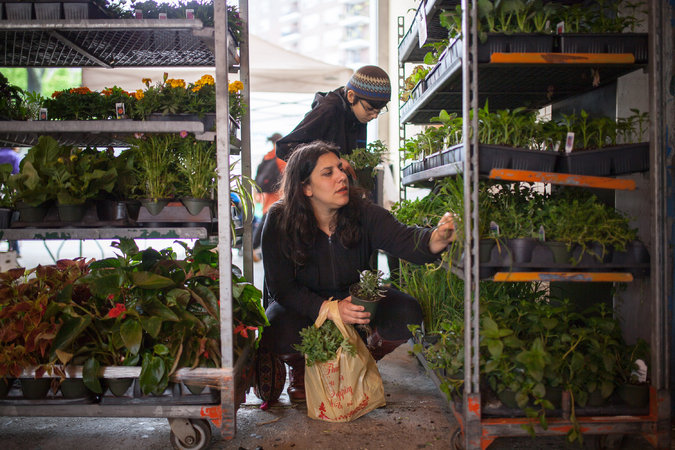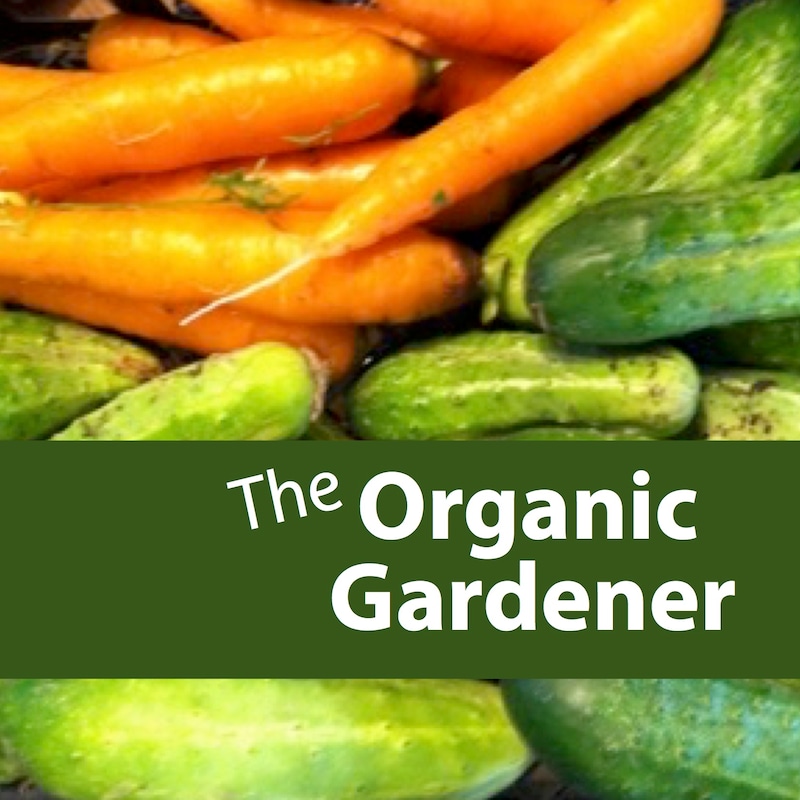
Shownotes
Dr. Maya Shetreat-Klein author of The Dirt Cure: Growing Healthy Kids with Food Straight from Soil.
Board certified in adult and child neurology as well as pediatrics, Dr. Maya has a medical degree from Albert Einstein College of Medicine. She completed the University of Arizona’s Fellowship in Integrative Medicine, and now serves on their faculty. She lectures on children’s health, education and the importance of time in nature, botanical medicine, biodiversity, and the relationship between health and the natural world. Dr. Maya has testified on topics including fracking, safe products for children, and the impact of chemical exposures on children’s health. She also founded the Terrain Institute, where she teaches and mentors parents, educators, healers and health care providers about Terrain Medicine . Dr. Shetreat-Klein practices, teaches and lives with her family in New York City, where she grows organic fruit and vegetables and keeps 8 chickens on her urban farm.
. Dr. Shetreat-Klein practices, teaches and lives with her family in New York City, where she grows organic fruit and vegetables and keeps 8 chickens on her urban farm.
Are you in NYC? I grew up on Long Island.
I’m in NYC but in a greener part.
 I’m excited to introduce my guest Dr. Maya Shetreat-Klein who wrote a book called The Dirt Cure: Growing Healthy Kids with Food Straight from Soil.
I’m excited to introduce my guest Dr. Maya Shetreat-Klein who wrote a book called The Dirt Cure: Growing Healthy Kids with Food Straight from Soil.
Tell us a little about yourself.
I am an intergrative pediatric neurologist in NYC. I treat both adults and kids who have chronic health issues. A lot of the time it means treating them for physical and looking at emotional and spiritual things too. That brought me on a journey to plants and nature can be are really important part of our health and our healing.
- That brought me to
- growing food
- learning about soil
- healthy soil
- how the earth’s healthy biome is connected
amazing connection to make
really very transformative for our patients.
I think I was telling you in the prechat, I am reading it over my summer vacation. It is so full of information. I am really interested in how much our kids sit and the lack of movement and then also I guess there’s this new movement for a program called breakfast after the bell so the kids are eating breakfast, my kids ate in my classroom in this year. Got me to introduce composting, we tried a worm bin, and I also ran the garden club this year with another teacher. So many things I’m pre-chat about and I love the way it’s full of real science an a lot of my guests talk about needing real science to back it up! And you’re such an amazing doctor I look at your credentials etc and feel totally humbled!
Tell me about your first gardening experience?
My first experience in my life, was when I was a child. I didn’t like tomatoes. My mother wanted me to like tomatoes. She thought if we together grew a garden and our own tomatoes, I couldn’t help but love fresh tomatoes.
Very traditional, very conventional. We tilled part of the backyard, planted the tomatoes and put the fertilizer in and planted other things too.
I was about 6-7 year old, maybe somewhere around there. We did the whole garden thing, we got the tomatoes and my mother cut them up and served them to me.
I said, “I like tomatoes, just not today!”
I did love everything from the garden. It took me until I spent a summer in Italy eating the tomatoes in the mediterranean till I loved tomatoes
But I loved passionate with the gardening experience
connected to the plants
most years until I was in high school
very productive gardens.
When I was a kid, I loved anything with cooked tomatoes but I wouldn’t eat a raw tomato for anything.
- They’re mushy
- The texture
I like the smell of them
There’s nothing like the smell of a fresh tomato
the leaves
smell a tomato plant
as a kid I was so sensitive to the texture, that soft mushy texture. I was having these particular beefsteak heirloom There’s and I realized they could be firm and not mushy and gushy. Then I could enjoy them.
I talk a lot in the dirt cure. I always tell people it can take up to 30 tries with a new food for a kid to start to like it.
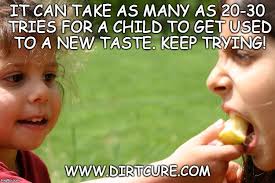
Most people give up after one, 2, 3, five tries, up to 30 tries
always remember
just because they might
keep trying in different ways of the same ways
Just sort of getting used to it and feeling more comfortable whatever the taste texture might be.
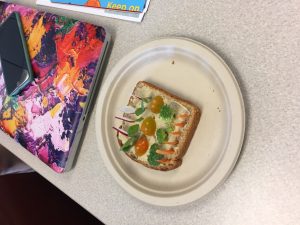
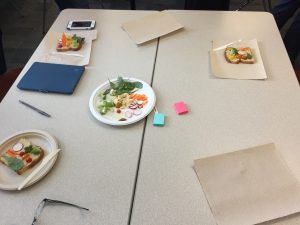
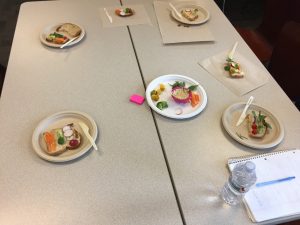
I went to a workshop at a training after school got out. It was geared towards to pre-k but most teachers were older. They talked a lot about exposure doesn’t mean tasting it and they were sensitive about wasting food but they talked about different things. As an educator we talk about reading some kids have to hear something 700 times so 30 doesn’t sound like much at all!
- this is sort of a way
- that I talk about connecting with plant
- the only way you can have healing is to consume them
- getting the nutrition
Some examples giving flowers to people
- when someone’s happy
- they’re celebrating
- sad lost someone they love
might gives flowers to them and that really transforms how they feel!
We know when we give flowers these are very accessible ways we change how we feel through plants. Lots of ways kids can do that
- growing things
- enjoying them with art
- composting
- climbing a tree
These are all ways we are gaining benefit from plants natural world! Doesn’t have to be consuming the plant to have the benefit.
- that is a way
- important way
- starting with step one everything else will follow!
I LOVE THAT!
How did you learn how to garden organically?
Actually I started to learn once I was a Dr. and a mother. I started to learn about the issues around pesticides. Both from a scientific and as an intuitive standpoint as a mother I didn’t want to eat food that had potentially toxic chemicals sprayed around it. And I didn’t like what we were doing to insects etc.
micro biome
community of organisms that live in both our bodies
micro-biome
bacteria that we share and other organisms
live in the soil and around the plants
I didn’t want to impact that.
Grow my own food
I decided I wanted to grow my own food and in NYC that was a challenge in whatever way I could
- try a lot of different methods including inside my apartment
- big aphid attack
tried to grow tomato plants inside
started to grow
green space behind my office
I had to convert into a healthy gardening space
- soil was dust
- not taken care of in any way
- huge vines growing
- unearth lack of care
- lack of a nice community in that space in a long time
Building Soil
- building the soil
- permaculture methods
- growing thing
in the beginnings it was so interesting
there were plants growing there
I remember specifically there were these beautiful vines growing every where
- gorgeous
- so verdant
I started to see them wilt and it turned out I had squash bores which was very distressing and of course the first thing I wanted to do is kill off those bores because they were killing my plants but when I looked online everything talked about injecting things into the plant.
My instinct is yes I’m killing those off they’re ruining my plants!
the whole point was to be healthier!
I said what can I do?
- more research
- go in cut the stem
- fish out the bore
- it’s blocking the stem
- went near the roots
- yanked out the little squash bores
- covered the area with soil so it could heal and reroot
Ultimately I saved most of those plants without using any pesticides!
It was such a good lesson because initially we’re at war, I don’t want anything to kill off my plants!
Have to remember we’re all in relationship together.
yeah I don’t want those bores to kill my squash plants but I’m not gonna take this slash and burn approach
That just cemented my commitment to working in natural ways to the plants to have them be as healthy as possible.
sometimes I lose plants because I’m not gonna use chemicals.
I’ve had a few guests talk about sacrificing one plant, if all the aphids are on one plant. I LOVE THAT ADVICE!
Do you want to talk more about diet and healthy food in your book? One of the big things I picked up and other people have suggested to me, and other people have mentioned, was if your craving sweets, making herbal tea. Allergies and diet…
Sweets
When it comes to sweets there’s a lot of ways to transform. We’re in a sugar obsessed food culture right now.
think about things like candy or sweets
- look at something like yogurt
- some yogurts have as much sugar as a can of soda
- there’s a lot of hidden places
- when you look at the grams of sugar…
Lots of places we’re getting hidden sugar like
- bread
- tomato sauce
corporations looking at
scans of the brain
what areas light up our pleasure centers
the most active
that means a lot of sugar and salt
a lot of processed foods are filled with sugar
a whole sort of a need, because sugar is very inflammatory in the body.
- auto immune
- adhd
- migraines
those things will potentially worsen with a lot of sweet and sugar
migraines away from sugar can help with
- energy
- chronic pain
- autoimmune conditions
- clear thinking
recommend in terms of cutting
getting rid of processed sugar
if I am having something sweet I always make sure it’s nutrient dense
could be
- fruit
- honey
- maybe syrup
- date sugar
- blackstrap molasses
these foods are nutrient dense and have antioxidant properties.
giving back at the same time
recommend when it comes to sweets
- cinnammon with it
- stableizes blood sugar levels
lots of sweet thing include cinnamon in the recipe becasue they taste good together but it so happens cinnamon is very good for keeping blood sugar levels more stable.
including bitters
people think wow, I would hate that
coffee is actually a bitter tonic
a lot of people don’t want to have sweet desert without coffee…
it balances the flavors
bitter tonics like coffee
- hot chocolate
- that’s a really good dark chocolate that’s not overly sweetened
- orange peel or lemon peel
